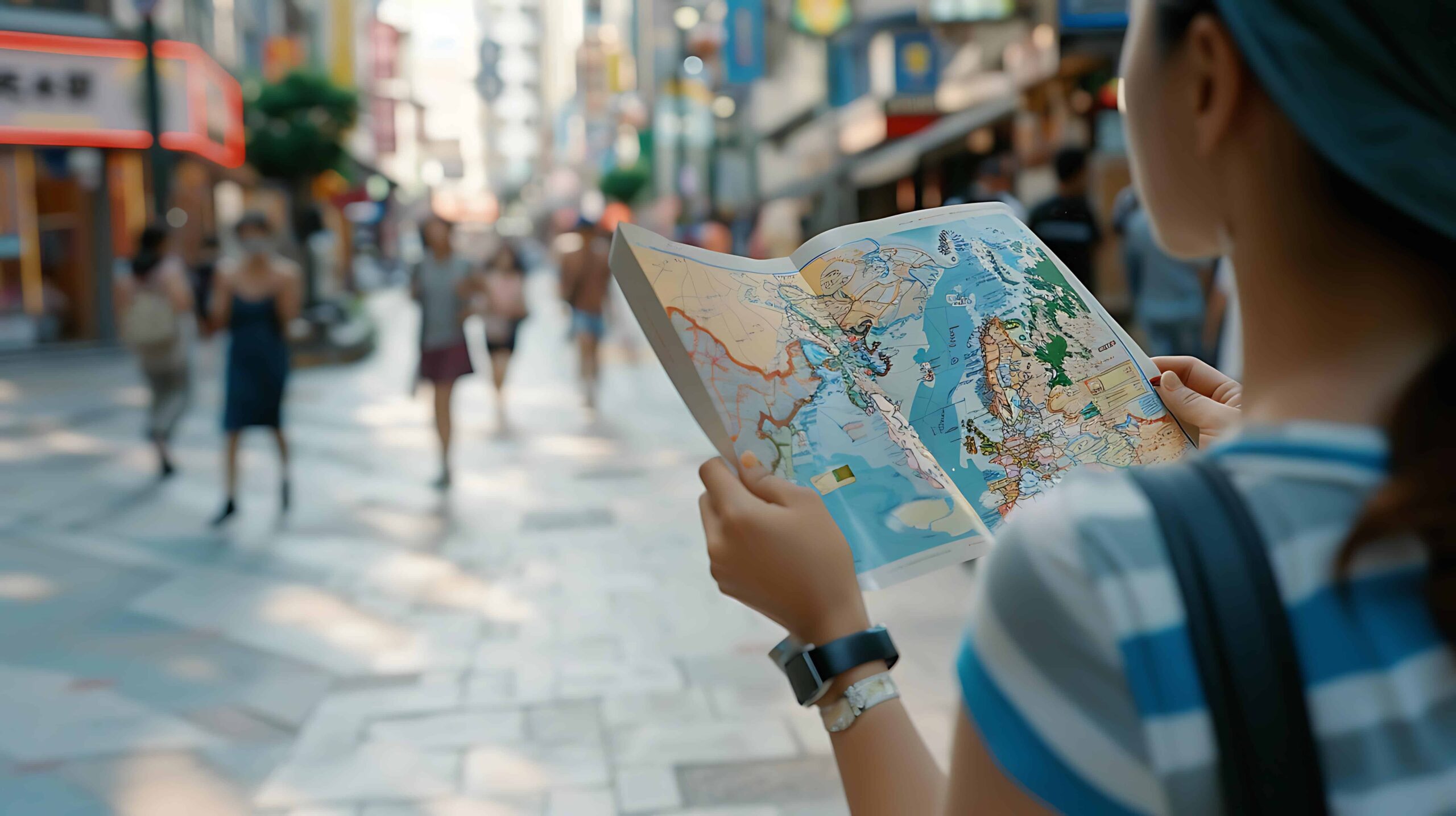When you’re heading to a new place, excitement can sometimes be met with uncertainty. Navigating new destinations is about more than just using a map—it’s about preparing wisely and being resourceful. Whether you’re taking a road trip or flying across the world, these 7 practical tips will help you confidently explore unfamiliar places.
1. Use Offline Maps to Stay on Track
One of the easiest ways to get lost in a new destination is to rely too heavily on an internet connection. While Google Maps or Apple Maps are great tools, they can fail when you’re in areas with poor reception.
Solution? Download offline maps. This feature allows you to still find your way even when there’s no signal. It’s a lifesaver in remote regions, foreign countries, or crowded city centers where Wi-Fi isn’t reliable. Make sure to download your maps ahead of time so you’re not scrambling last minute.
Pro Tip: Apps like Maps.me or Google Maps allow you to save areas for offline use.
2. Master the Local Transit System
Public transportation can be a tricky part of navigating new destinations, but it’s often the best way to get around, especially in major cities. Before you arrive, take some time to understand the local transit system.
Learn the following:
- Ticketing options (day passes, reloadable cards)
- Routes and stops near your hotel or Airbnb
- Peak travel times to avoid overcrowding
Most cities have apps or websites that provide live updates on buses, trains, and trams, making it easy to plan your route.
Did You Know? Many cities offer discounts for tourists on public transportation. Check if you can buy a multi-day pass to save money and reduce the hassle of buying individual tickets.
3. Pack a Portable Charger
Running out of battery when navigating a new place can leave you stranded. Whether it’s your phone, tablet, or GPS device, a dead battery can be a serious issue—especially if you’re relying on it for directions.
Don’t make that mistake. Always carry a portable charger, so you’re prepared for a long day out. Compact, high-capacity chargers can be a game changer, ensuring your devices stay powered up throughout the day. This is particularly important when you’re using GPS features or translation apps, which can drain battery fast.
4. Learn Basic Local Phrases
Knowing a few key phrases can make navigating a new destination much easier. While you don’t need to be fluent, understanding the basics can help you ask for directions, order food, or find a bathroom.
Here are some phrases to master:
- “Excuse me, where is…?”
- “How much does this cost?”
- “I don’t speak [language].”
You’d be surprised how helpful locals will be when they see you’re making an effort.
Bonus: There are free language apps like Duolingo and Babbel that can quickly teach you essential phrases.
5. Invest in a Quality Travel Guide
While most people use their smartphones for travel, a physical travel guide can still be incredibly useful. Whether it’s a guidebook or a downloadable PDF, these resources often include detailed maps, tips, and local insights that you won’t find online.
Many guidebooks also provide advice on local customs, hidden gems, and how to avoid tourist traps. They offer a more curated experience than blindly relying on Google search results.
6. Embrace Local Customs and Etiquette
Navigating new destinations isn’t just about geography—it’s about culture. Learning about local customs will help you avoid awkward situations and allow you to connect with the community on a deeper level.
Some cultural tips to keep in mind:
- In Japan, it’s customary to bow when greeting.
- In Italy, you might be expected to greet people with a kiss on each cheek.
- In certain Middle Eastern countries, modest dress is important, especially in religious areas.
Understanding local norms will make your experience smoother and more respectful.
7. Stay Safe: Trust, But Verify
As you navigate new destinations, stay alert and trust your instincts. Not every area will be safe, and not everyone will have your best interest at heart. It’s important to balance trusting locals with verifying the information they give you.
How to stay safe:
- Avoid wandering alone at night in unfamiliar areas.
- Trust official apps or maps over hearsay.
- Carry a backup credit card or cash in case of emergencies.
Using common sense and staying aware of your surroundings will help you avoid potential risks.
Key Takeaways For Navigating New Destinations
- Offline maps are essential in areas without reliable internet.
- Learning basic local phrases can ease communication challenges.
- Invest in a portable charger to avoid being stranded with a dead phone.
- Master the local transit system for smoother, more affordable travel.
- Physical travel guides offer curated, reliable insights and maps.
- Respecting local customs helps you blend in and enriches your experience.
- Always stay cautious and follow your instincts to ensure safety.
Conclusion
Navigating new destinations doesn’t have to be overwhelming. By preparing with these practical tips, you’ll be ready to explore confidently, no matter where the road takes you. Just remember to keep an open mind, be flexible, and embrace the adventure of discovering new places!
Ready for your next trip? Make sure you’ve got your offline maps, phrases memorized, and a fully charged phone. Happy travels!




